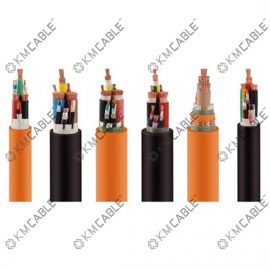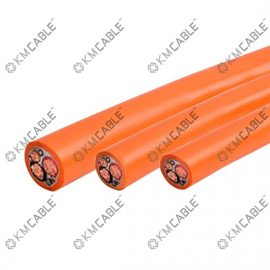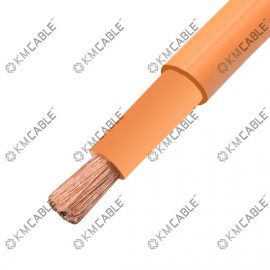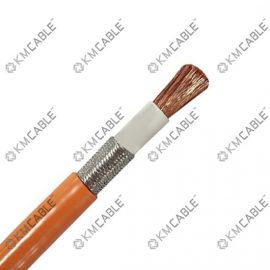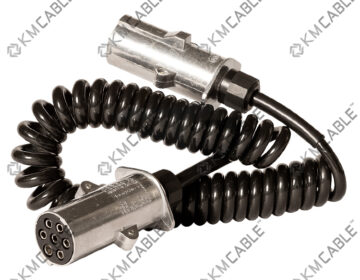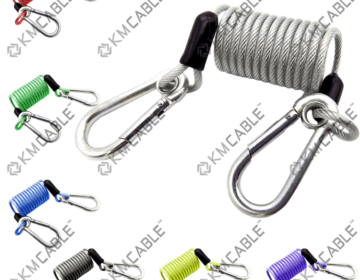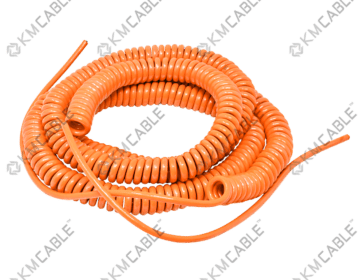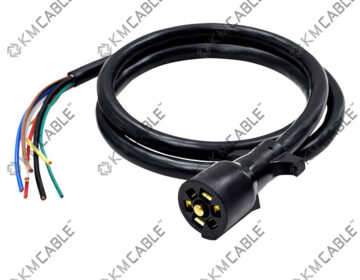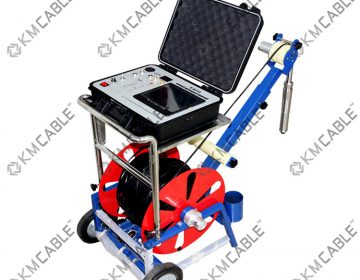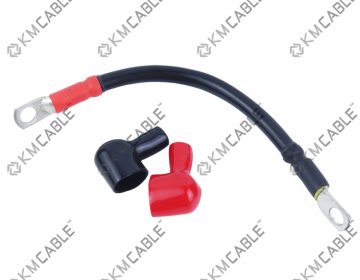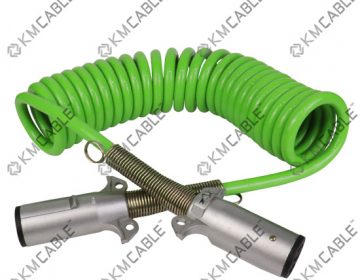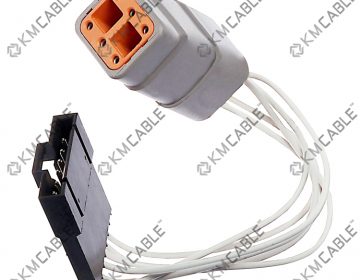No products in the cart.
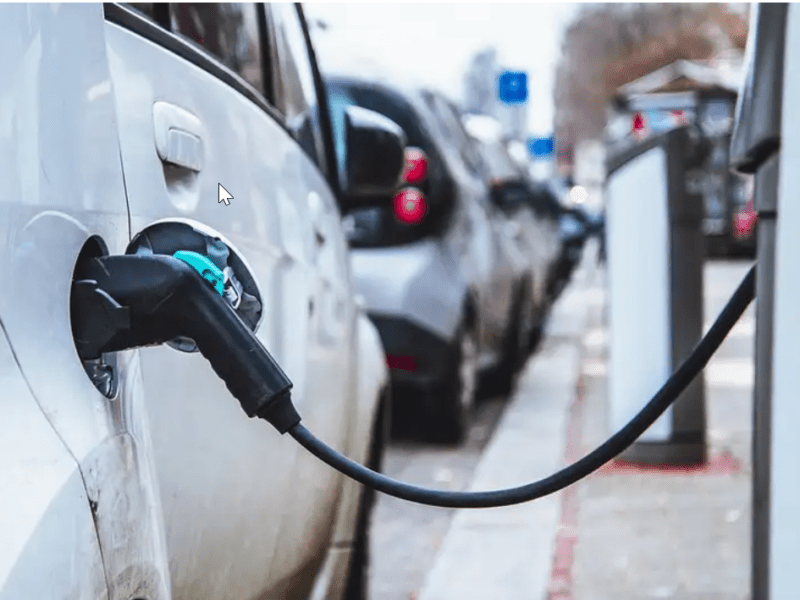
Electric vehicles (EVs) are becoming increasingly popular, and with that comes a growing demand for efficient and reliable charging solutions. One crucial aspect of these charging solutions is the charging cable, which is used to transfer power from the charging station to the vehicle’s battery. In this blog, we will explore the standard EV charging cable, the difference between Type 1 and Type 2 EV chargers, and the options for home charging.
Standard EV Charging Cable
The standard EV charging cable is an essential component of the EV charging system that connects the vehicle to the charging station. The standard EV charging cable is known as the J1772 cable and is used for Level 1 and Level 2 charging. This cable is designed specifically for EVs and is equipped with a plug that fits into the vehicle’s charging port. The J1772 cable is made up of two conductors, one for power and one for communication, and is capable of handling up to 80 amps of power. The standard EV charging cable is typically a combination of two cables, one for charging and the other for communication. The charging cable transfers power from the charging station to the vehicle’s battery, while the communication cable allows for the transfer of data between the vehicle and the charging station.
Types of EV Chargers and EV charging Cable
EV chargers come in different sizes and types, and they can vary in terms of their charging speed, power output, and connectivity options.
Types of EV Chargers:
- Level 1 Charger: Level 1 chargers are the most basic type of EV charger and are designed to be plugged into a standard 120-volt outlet. These chargers typically provide a charging rate of 2-5 miles of range per hour and are best suited for home charging or overnight charging.
- Level 2 Charger: Level 2 chargers are faster than Level 1 chargers and are designed to be hardwired into a 240-volt electrical circuit. These chargers can provide a charging rate of up to 25 miles of range per hour and are best suited for home or public charging.
- DC Fast Charger: DC fast chargers are the fastest type of EV charger and are designed to charge EV batteries quickly, typically within 30 minutes to 1 hour. These chargers are usually found in public charging stations along highways or at EV dealerships. DC fast chargers can provide a charging rate of up to 350 kW, depending on the specific charger and the EV’s battery capacity.
Power Output:
The power output of an EV charger is typically measured in kilowatts (kW) and determines how quickly the charger can charge an EV’s battery. A Level 1 charger typically provides 1.4-1.9 kW of power, while a Level 2 charger can provide 7.2-19.2 kW of power. DC fast chargers can provide power outputs ranging from 50 kW to 350 kW, depending on the specific charger and the EV’s battery capacity.
Connectivity Options:
EV chargers can be connected to the electrical grid using different connectivity options, including:
- Hardwired: Hardwired EV chargers are directly connected to the electrical circuit and do not have a plug or cord. These chargers are usually installed by an electrician and require a dedicated circuit.
- Plug-In: Plug-in EV chargers are designed to be plugged into a standard electrical outlet or a dedicated EV charging outlet. These chargers are easy to install and can be moved from one location to another.
- Wireless: Wireless EV chargers use inductive charging technology to charge an EV’s battery without a physical connection. These chargers are still in the development stage and are not widely available yet.
EV chargers are a critical component of electric vehicle infrastructure, and they come in different types, power outputs, and connectivity options. By understanding the technical details of EV chargers, you can choose the right charger for your specific needs and charging requirements.
EV charging cables requirement/standard:
Due to the frequency of using and use direct contact to the charging station, there are some requirement and industry standard for the EV charging cable:
- Electrical Safety: EV charging cables must meet strict electrical safety standards to prevent electric shock, fires, and other hazards. The cables must be designed to withstand the high voltage and current of the charging process without overheating or short-circuiting.
- Durability: EV charging cables must be durable and able to withstand daily wear and tear, exposure to the elements, and repeated coiling and uncoiling. They should be able to withstand pulling forces and bending stresses without breaking or tearing.
- Cable Length: EV charging cables must be long enough to reach from the charging station to the EV’s charging port, which may be located in different positions depending on the vehicle make and model. The cable length may vary depending on the charging station and the specific application.
- Charging Speed: EV charging cables must be capable of delivering the appropriate charging speed for the EV’s battery capacity and the charging station’s power output. The charging speed is determined by the cable’s current-carrying capacity and the EV’s charging capability.
- Connector Type: EV charging cables must be equipped with the appropriate connector type for the specific EV and charging station. The most common connector types are the SAE J1772 connector for Level 1 and Level 2 charging and the CCS (Combined Charging System) or CHAdeMO connector for DC fast charging.
- Temperature Rating: EV charging cables must be designed to operate within a specific temperature range to prevent overheating or damage to the cable insulation. The temperature rating of the cable should be compatible with the charging station and the EV’s charging system.
- Regulatory Compliance: EV charging cables must comply with regulatory standards and requirements for electrical safety, electromagnetic compatibility, and environmental protection. The cables must meet the relevant standards set by organizations such as SAE International, IEC (International Electrotechnical Commission), and UL (Underwriters Laboratories).
Can I install an EV Charger at Home?
Yes, you can install an EV charger at home. There are a number of options for home charging, including Level 1 and Level 2 chargers. Level 1 chargers are typically plugged into a standard household outlet and can be used for overnight charging. Level 2 chargers require a dedicated circuit and can charge an EV much faster than a Level 1 charger.
Do you have to install a special charger for an electric car?
Yes, it is recommended to install a special charger for an electric car. This is because EVs require a higher voltage and amperage than a standard household outlet. Installing a special charger will ensure that the vehicle is charged efficiently and safely.
In conclusion, the standard EV charging cable is the J1772 cable, which is used for Level 1 and Level 2 charging. There are two main types of EV chargers, Type 1 and Type 2, and both are available for home charging. It is recommended to install a special charger for an electric car to ensure efficient and safe charging.
Need any professionally manufactured EV cable ? check our product below and contact our sales any time.

